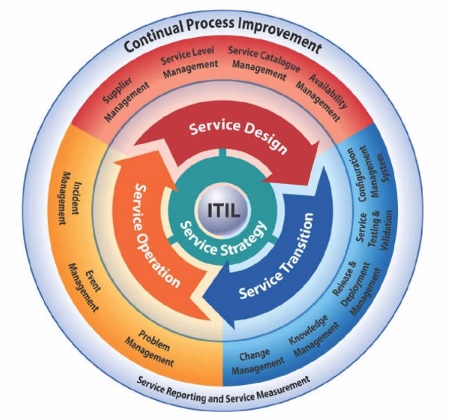In some point of your career as DBA you might have interacted with ITIL or at least your heard about it. ITIL is very common in the DBA workplace nowadays (moreover in larger companies) but no matter what level of involvement you have had I’m pretty sure at some point in you might asked yourself one of the following questions:
- Do I need to get an ITIL certification? even if I’m not in a managerial position?
- It is worth it to get an ITIL certification?
- How a DBA fits in the ITIL framework?
In these two blog posts, I will do my best to share my personal experience on how I got my ITIL v3 Foundations certification and also how this certification helped me to advance in my career.
First thing first, in order to make things a little bit clear I will down this post in two different areas:
- What is ITIL and why is so important for DBA’s
- How to prepare for the ITIL v3 Foundations certification exam
What is ITIL and why is so important for DBA’s:
ITIL stands for Information technology infrastructure library, and is a set of detailed practices for IT service management (ITSM) that focuses on aligning IT services with the needs of business.
ITIL Service Management Service Lifecycle, is split into 5 distinct lifecycle stages:
- Service Strategy
- Service Design
- Service Transition
- Service Operation
- Continual Service Improvement
Each stage relies on service principles, processes, roles and performance measures, and each stage is dependent on the other lifecycle stages for inputs and feedback
More and more companies nowadays are (or did already) adopting this service management framework as part of the IT organization.
The day to day DBA activities maps perfectly within the ITIL processes; incident management, request fulfillment and change management are the most common areas where a DBA will be involved and that’s why it’s so critical and important for us to understand the ITIL framework in great detail.
Please stay tuned for the part 2 of this post.
Carlos Robles is a Solutions Architect at AWS, a former Microsoft Data Platform MVP, a Friend of Redgate, but more than anything a technology lover. He has worked in the database management field on multiple platforms for over ten years in various industries.
He has diverse experience as a Consultant, DBA and DBA Manager. He is currently working as a Solution Architect, helping customers to solve software/infrastructure problems in their on-premise or cloud environments.
Speaker, author, blogger, mentor, Guatemala SQL User group leader. If you don’t find him chatting with friends about geek stuff, he will be enjoying life with his family.

